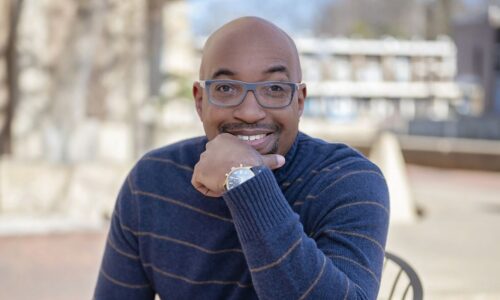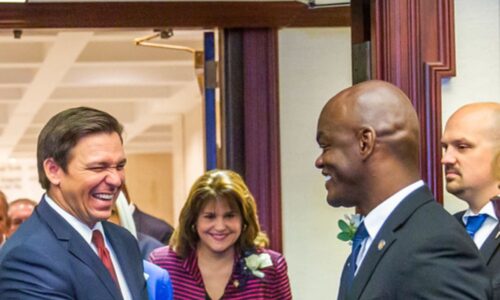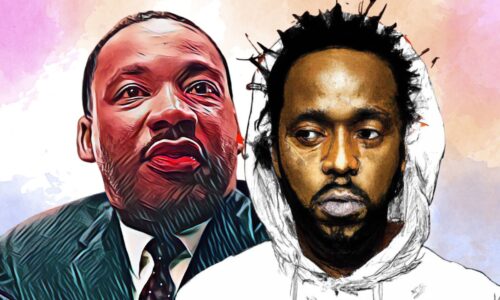Escalating aggression and annexing other countries. Stabbings, shootings, bombings and suicide attacks. Calls for surveillance of United States citizens, and even internment camps.
 By: Grouchy Greg By: Grouchy GregFounder/Chief Creative Officer CollegeHipHop.com |
You could easily believe that I am referencing the climate of the world today, but this is what was happening during the build up to World War II as well, which lasted from 1939 to 1945.
Nazi aggression and expansionism under Adolf Hitler’s maniacal nationalist rule of Germany, Japan’s military invasion of China and Italy’s foreign policy brought war, death, and destruction to the world.
The Japanese suicide attacks that took place at Pearl Harbor on December 7, 1941, were the worst attacks on American soil until 9/11. Over 2,400 Americans were killed and five United States battleships were sunk in the surprise attacks on Hawaii.
The xenophobia against Japanese-Americans hit a low point during this period. Hundreds of thousands of Japanese were rounded up in the United States and placed in temporary internment camps. The United States pretty much ended the war on August 6, 1945, when the world’s first atomic bombs were unleashed on Hiroshima and Nagasaki.
Over 80,000 people were killed instantly, and 90% of the city was wiped out. The next bomb hit Nagasaki three days later, instantly killing another 40,000 people.
Several days later, Japanese Emperor Hirohito unconditionally surrendered thanks to the power of the “new and most cruel bomb” the United States possessed.
In total, over 80 million civilians were killed during the war, while 25 million soldiers lost their lives in what historians have labeled as the worst war in the recorded history of the planet.
 |
| Japanese DJ and promoter, DJ Sassy |
[T]he climate in America and the world, in general, seems to be heading down the same path. Russia’s aggression against the Ukraine, the war raging in Syria, terror attacks taking place in cities in Europe and America and the calls to monitor entire groups of people are all happening right before our eyes.
The shock waves of the bombs the United States dropped on August 6 did more than just level those cities and kill people; they rippled through generations.
I’ve always wanted to speak to somebody direct and honest about Hiroshima and Nagasaki since my grandfather served his country in the Pacific during World War II.
So recently while in Japan, I had the pleasure of kicking it with DJ Sassy. She has been spinning Reggae and Dancehall for 20 plus years, follows Rastafari culture and is a schoolteacher who also just happened to further the spread of Reggae music throughout Japan as a young record/event promoter.
DJ Sassy’s family was also directly impacted by the atomic bombs. If you were a young Japanese man or woman around the age of 15 in 1946, you would be a ripe old 45 by the time Hip-Hop was being born in Jamaica and on the streets of New York City.
So you can see how the offspring of that generation that was bombed, like DJ Sassy, still harbor nightmares from the nuclear devastation that was of inflicted upon their parents.
CollegeHipHop.com: So how did you get started in the music industry, reggae music in general?
DJ Sassy: Before I was a DJ, I was in the Japanese Peace Corps. I lived in Malaysia, I’ve lived in the Philippines, I’ve lived in New York, and I’ve been to Jamaica four times. And when I DJ’d there it was always about dance and peace.
CollegeHipHop.com: Who were some of your early influences?
DJ Sassy: Of course Bob Marley. But in reality, I met the assistant director for the (1978) movie “Rockers.” He taught me what a Rasta is and the philosophies. I also worked with the first popular Reggae musicians to spread Bob Marley’s music in this country.
| https://www.youtube.com/watch?v=GZ0xaG430wg |
| The classic and influential 1978 film “Rockers” |
CollegeHipHop.com: How did you meet these people?
DJ Sassy: It’s a weird story. I was in Jamaica one day. I had some people in Japan, who wanted me to bring back some 7-inch records from Tuff Gong (Bob Marley’s record label). So I said yes, I can bring them back to you to Japan. So I did it.
I ended up helping with the distribution of records and promotion of Reggae events with the local Reggae musicians.
CollegeHipHop.com: You mention that you’ve been to Jamaica four times. What was it like for you being in the country?
DJ Sassy: I went, because I wanted to learn Jamaican culture and where the music comes from. So I went to live there for a month, to get to know the Rastamen. Every Sunday the Nyabinghi Rasta’s would gather to play.
The oldest one there looked at me and said “you, what are you doing here?”
I said, “I’m just learning Jamaican culture. I came from the Motherland, to the Fatherland to learn the culture because I helped introduce the music to Japan.”
He said, “you Chinese people are copying our music.” I told him “I am not Chinese; I’m Japanese.”
CollegeHipHop.com: What do you do during the day when you’re not DJ’ing?
DJ Sassy: I am now a preschool teacher. I teach five-year-old and six-year-old children. I do a lot of Hip-Hop education, with poetry. I want to use Hip-Hop to educate our youth with. I want them to be smarter.
CollegeHipHop.com: How do the children take to using Hip-Hop music to teach them?
DJ Sassy: They love it. I see the difference between before and now. In this country, English is a second language. Everybody speaks English. After World War II, it was implemented into the educational system. For instance, English is required to enter a University, but not necessarily for the communication. We can read it, we can write it but we are not used to the communication.
CollegeHipHop.com: How did the war impact you growing up as a Japanese citizen? In the United States, it is viewed as a victory.
 |
| Tech. Sgt. Eugine Scott from Misawa Air Base, Japan, is a Japanese translator. |
“When I was small, my mother told me through her own experience during World War II about the ‘bomb from the sky.’ And she became a nightwalker.” – DJ Sassy
CollegeHipHop.com: What’s a night walker?
DJ Sassy: Someone who kind of just walks you know, sleepwalking. She didn’t even know about it, my grandmother told her. She was that stressed about the bomb sound. She told me about it, and I remember her stories.
And after 9/11, I lived close to A U.S. Navy base and a U.S. Army base in Japan. And the jets started flying overhead, and I started remembering my mother’s story. Then, I thought it was going to become a war and I was very scared.
So it wasn’t like hearing about it on the news or watching it on TV, it was all through my mother, who experienced it,
But during the 3/11 (when a massive earthquake and Tsunami wiped out Northeastern Japan), I watched American soldiers help the Japanese victims. And how the U.S. Marine Corps were the first people to reach the isolated Island, and I started crying.
Because years and years ago, Japanese and American people were fighting a war and killing each other. Now Americans are helping Japanese people; I was just so impressed.




